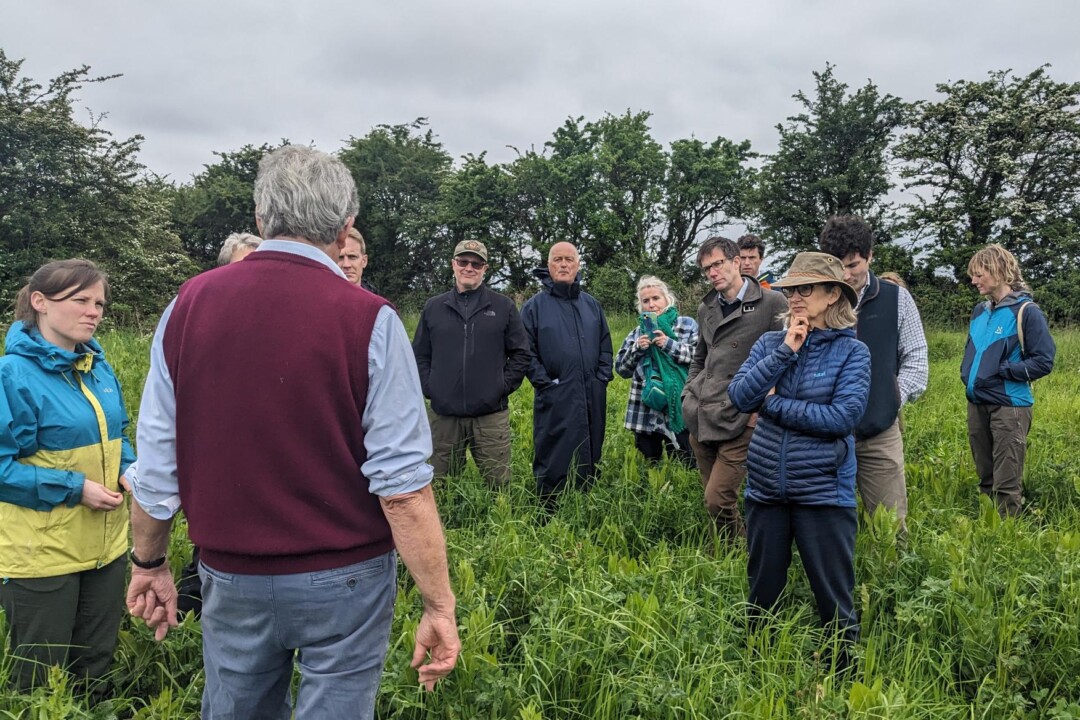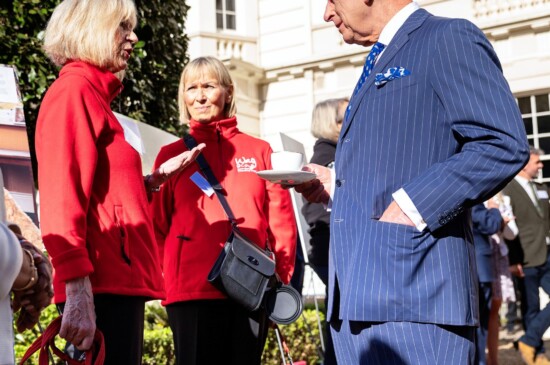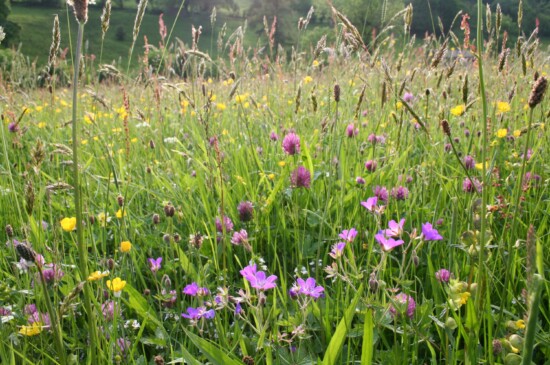
Putting farmers in the driving seat of innovation
- Countryside
In May, we were very pleased to join the Soil Association at Bradwell Grove in Oxfordshire to celebrate the achievements of the Innovative Farmers programme. We heard directly from farmers about their involvement in the scheme which supports farmer-led trials, field labs, to enable farmers to test innovative, nature-friendly, and profitable new practices.
“The Innovative Farmers programme is vital for farmers… the access to research information from field labs is invaluable,” said Charles Hunter-Smart, Estate Manager at Bradwell Grove. Through the programme, Bradwell Grove has led pioneering research into sustainable farming practices such as organic wheat production.

Celebrating over 150 on-farm trials
King Charles III Charitable Fund has supported the Soil Association’s Innovative Farmers programme since its inception over 12 years ago. Together with other funders, our support has enabled farmers to innovate by connecting them through shared topics, matching them with academic researchers, organising events, producing resources and reports, and crucially, sharing findings with the wider farming community to promote agroecological practices.
To date, Innovative Farmers has launched over 150 field labs across the UK, involving 750 farmers/growers and 40 research organisations collaborating to share knowledge. A recent survey found that 87 percent of field lab trialists have continued or plan to continue with the practices trialled, and 80 percent of farmers and growers in the Soil Association’s wider network have been inspired to adopt new practices on their farms.
Six-metre wildflower margins and drought-tolerant crops
A highlight of the event involved a tour of the Bradwell Grove estate to see their nature-friendly practices including six-metre wildflower margins and herbal leys—diverse sown pastures that enhance livestock health, soil fertility, and biodiversity. We also heard how Bradwell Grove is currently participating in a field lab to evaluate drought-tolerant sorghum as a silage crop.
With growing recognition that agroecological farming can help address the climate and biodiversity crises, the work of Innovative Farmers has become more valuable than ever. The Soil Association’s CEO, Helen Browning, highlighted that with challenges, such as more extreme weather events and changes to government farm payments, farmers need increased support to innovate and find the best ways to create a more sustainable future.
Looking to the future
It was a great event to bring together stakeholders involved in this programme and hear from farmers and researchers about the impact of this programme driving innovation towards more nature-friendly approaches. Over the next five years, Innovative Farmers plans to extend the length of field labs, allowing for more robust evidence gathering amid increasing weather extremes. There will also be a greater focus on exchanging knowledge with similar projects in the UK, Europe, and globally.


